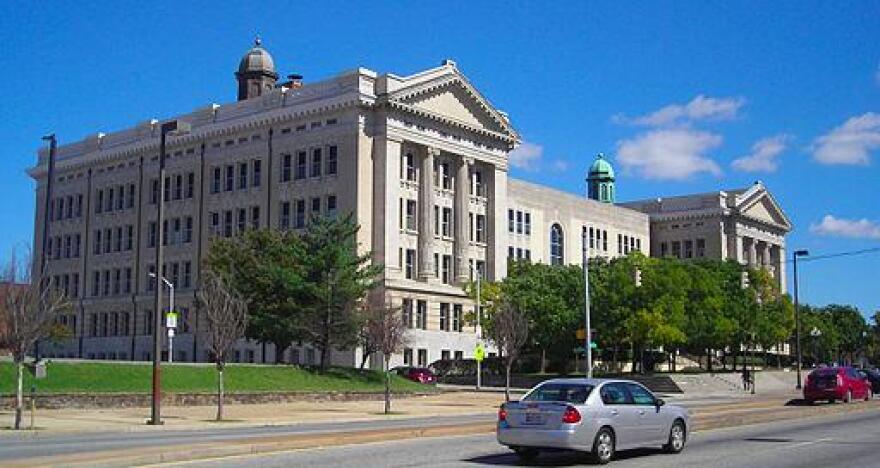Baltimore City students returned to the classrooms Thursday, after a winter break extended by administrators to test staff for COVID amid the omicron surge. School officials have announced new mitigation strategies that some students, parents and teachers say aren’t strong enough.
School administrators and their allies had a press conference of their own Monday, where CEO Sonja Santelises said the system will bolster testing efforts. All staff will now be subject to regular testing, not just unvaccinated workers, and parents will have new ways to submit testing consent forms for their children.
The Baltimore Teachers Union has called for tighter prevention strategies, including testing for every student and staff member and to have all school buildings’ ventilation systems examined and updated if necessary. Before winter break, union president Diamonté Brown requested that students spend the first week of the semester in asynchronous instruction, while opening school buildings to administer PCR tests and distribute at-home testing kits to families.
At a Wednesday news conference organized by Councilmembers Zeke Cohen, Odette Ramos, Ryan Dorsey, Kris Burnett and Sharon Green Middleton, a coalition including Students Organizing for a Multicultural and Open Society (SOMOS), No Boundaries Youth Organizers, Baltimore Connect, CASA De Maryland, Healing City, Organizing Black and community organizations from across the city demanded the district distribute high-filtration masks such as N95s to staff and students.
Larry Simmons, president of the Parent Community Advisory Board, said COVID testing should be required for all students unless a parent takes action to opt their child out.
“We have testing consent rates well below 50% in some schools. The opt in consent form serves as a barrier that compromises the safety of all families,” he said.
High school literature teacher Amber Phelps said her classes were making progress before omicron began spreading rapidly.
“All that productivity in the classroom really came to a halt as we faced new challenges with omicron. School climates descended into chaos and fear as positive cases climbed and attendance in buildings plummeted,” she said.
She said that students’ learning will likely continue to suffer after reopening after a two-week break of family gatherings and travel, leading to quarantines and staffing shortages.
“Students aren't learning if they are being herded into auditoriums or cafeterias or gyms because we are short staffed, students aren't learning when a class of 36 is decimated to single digits and students who are at home have no remote options, students aren't learning when they are wearing winter coats in classrooms as windows are flung open in the middle of winter because of our antiquated buildings,” Phelps said.
She said the union’s plan “does more work to get students back in the classroom and learning than the current status quo strategies to contain this highly contagious strain.”
Officials at the State Department of Education said late last year they would only support a local school system’s return to virtual learning “under the most exigent of circumstances.”
The coalition announced at the news conference that the nonprofit Baltimore CONNECT had donated 12,000 N95 masks to the union. Medicine for the Greater Good contributed an additional thousand.
Mayor Scott announced Wednesday an additional 100,000 tests and 80,000 N95 masks for city schools.
Charlotte Juengel, a high school senior at Baltimore City College, called his action a wonderful start but noted that N95 masks should be changed every one to five days.
“The need for more masks remains substantial,” she said. “We want to assure that if schools are remaining open in-person, that they are as safe as possible and that we are taking abundant precautions to ensure their safety.”
Councilman Cohen, a former teacher, said that everyone wants kids back in school – but that residents are justifiably concerned for their health and for the health of their families.
“Baltimore has some of the oldest school buildings in the state of Maryland. Many of our kids ride the bus. We have multigenerational families living together in the same home. People have a right to feel scared and we have an obligation to show up for them,” he said.
Councilwoman Middleton echoed his concerns.
“We’re not saying stop completely. We just need more time to get this testing situation in order,” she said.



